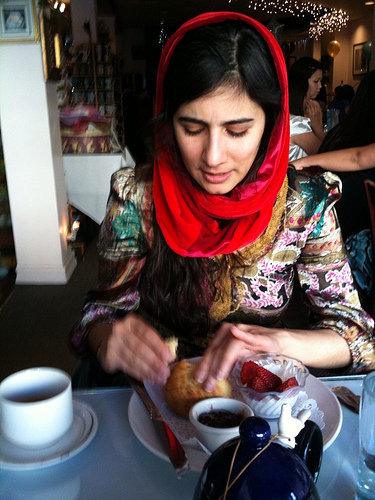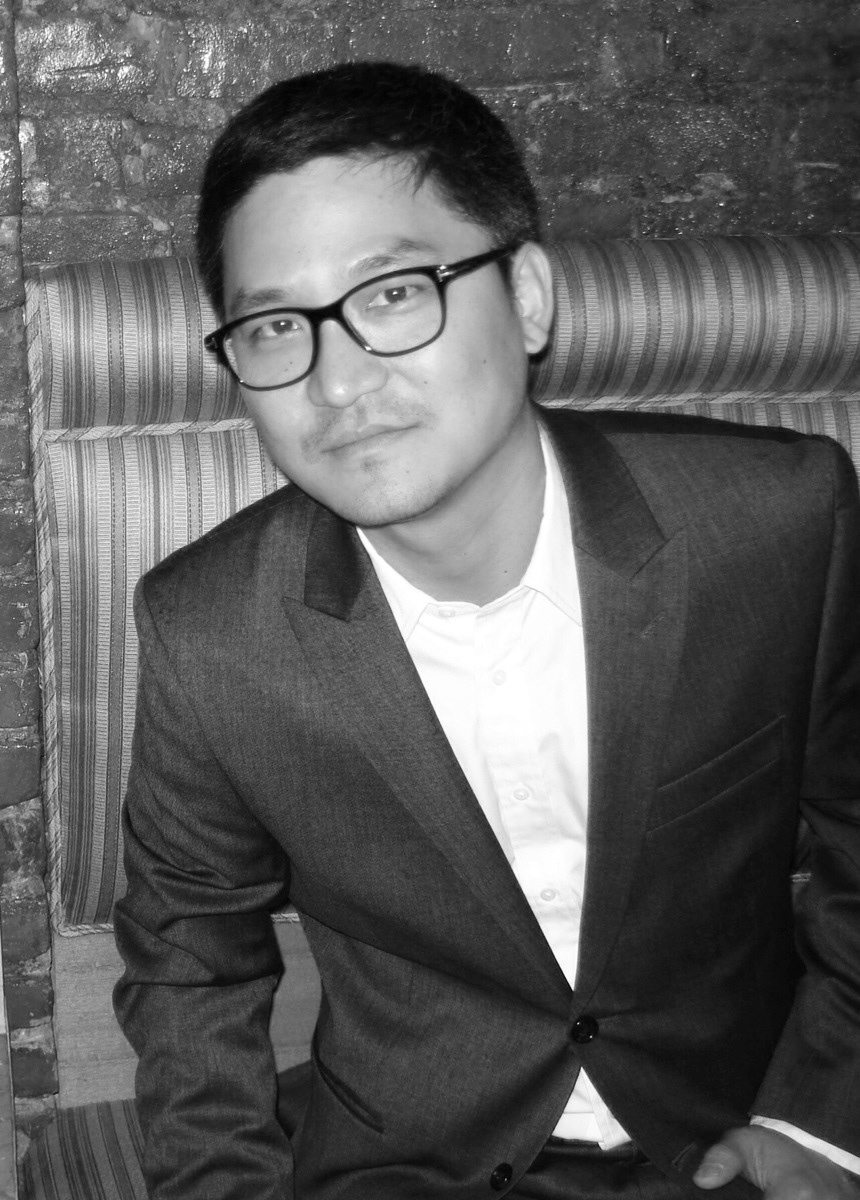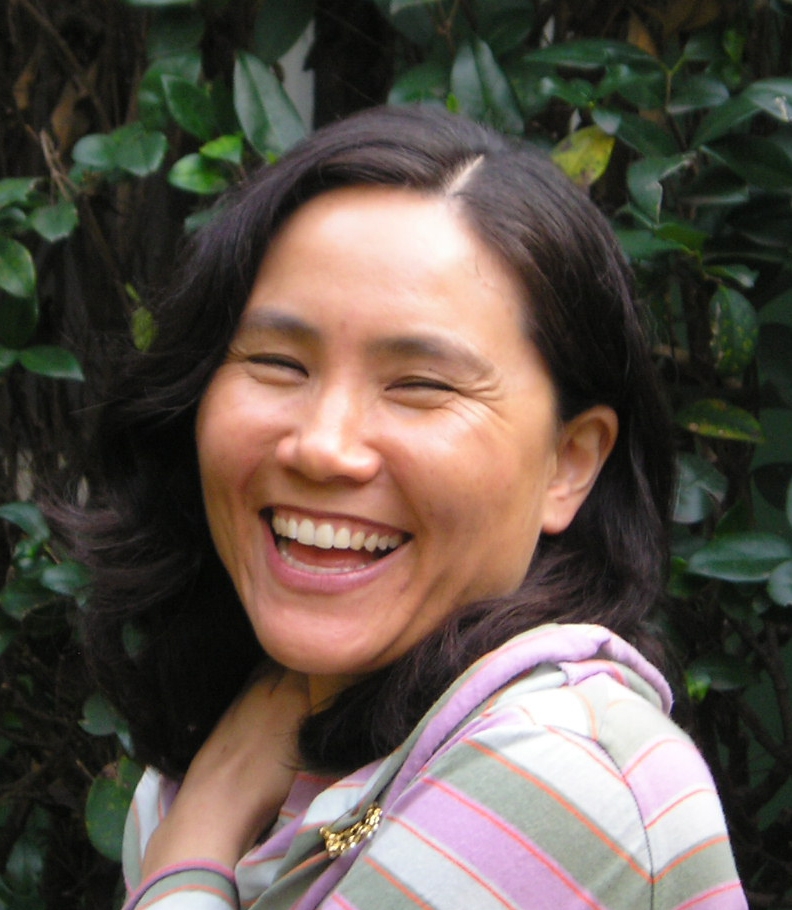Celebrate Kundiman's 11th Annual Poetry Retreat as Marilyn Chin, Eugene Gloria, & Michelle Naka Pierce share work with 2014 Kundiman Retreat Fellows. Free and open to the public. Reception to follow.
Congratulations to Janine Joseph, winner of the 2014 Kundiman Poetry Prize for her manuscript "Driving Without a License"
Congratulations to Janine Joseph, winner of the 2014 Kundiman Poetry Prize. The Alice James Books Board along with members of the Kundiman artistic staff selected her manuscript Driving Without a License. Along with book publication, Janine will also receive $1,000.
Janine Joseph holds an MFA from New York University and a Ph.D. from the University of Houston. Her poems have appeared in Kenyon Review Online, Best New Poets, Hayden’s Ferry Review, The Journal, and elsewhere. A recipient of a Paul and Daisy Soros Fellowship, an Inprint/Barthelme Fellowship in Poetry, and an Academy of American Poets prize, she is an Assistant Professor of English at Weber State University in Ogden, Utah.
The 2014 Kundiman Poetry Prize finalists were: Purge by Michelle Chan Brown, Recombinant by Ching-In Chen, Love the Stranger by Jay Deshpande, quiet of chorus by Vanessa Huang, seconds of needless animal terror by Esther Lee, Cutlish by Rajiv Mohabir, The Space Between by Alison Roh Park, Tula by Chris Santiago, and Overpour by Jane Wong.
Congratulations to the winner and finalists!
Interview with April Naoko Heck
Cathy Linh Che: Your book A Nuclear Family came out this spring. Congratulations! Could you talk a little about the book's title?
April Naoko Heck: Thanks!
The title A Nuclear Family works on several levels: My Japanese great-grandmother was a survivor of Hiroshima, and on the day the bomb fell, my mother was in the womb about twenty miles away in Hiroshima prefecture. My mother later went on to marry my white, American father––who, ironically, worked for a nuclear power plant through the 1980s. During that time––during most of my childhood in Ohio––my little sister, our parents, and I made up a "nuclear family," in that utterly romantic sense of the term.
It occurs to me how new the word “nuclear” is––I just checked the etymology for “nucleus,” which I will share for my fellow word nerds: “1704, "kernel of a nut," 1708, "head of a comet," from Latin nucleus "kernel," from nucula "little nut," . . . . Modern atomic meaning is 1912.”
Yes, “A Nutty Family”––that’s accurate too.
Cathy: We attended all three Kundiman retreats together and graduated together. Why did you apply, and what have you found there as a fellow?
April: In the months leading up to the retreat, I felt lost and demoralized as a writer in New York City. My manuscript was getting rejected from a million places. At the same time, I was working with literary stars, in proximity to, but not part of the glitterati. (Of course, that term is smoke and mirrors; I only had to talk to my non-writer friend to realize how distorted my perspective was, because he hadn’t even heard of writers I envied!)
At my first retreat, I cried as much as I laughed, often in the same breath. The retreat’s workshops were the first time I’d ever studied writing with Asian American faculty. And even though all of us poets came from different places, the common patterns in our histories and struggles to assimilate made for richer conversations and deeper sense of belonging than I’d ever experienced in an academic setting. Kundiman was super vitamin to my creative spirit. It was reinvigorated courage and motivation. It was detox, adrenaline, recovery. It was, and is, my poetry home.
Cathy: What advice would you give to a poet who wants to publish a first book?
Take your time, be patient, and aim high. Everyone should send poems to The New Yorker. Everyone should send their manuscript to the Yale Series of Younger Poets Prize. Over time your best poems will find the right homes, and your manuscript will find the right press. Don’t compare yourself to others. Just do your work with as much joy as you can muster, trust in the process, and, maybe above all, help your friends. The rewards of the latter continue to surprise and delight me.
April Naoko Heck was born in Tokyo and moved to the U.S. with her family when she was seven. A Kundiman Fellow, she has been awarded residencies from the Virginia Center for the Creative Arts and Vermont Studio Center. A Nuclear Family, her first collection of poems, was released by UpSet Press in spring 2014 and is available on Amazon. Photo by Rachel Eliza Griffiths; book cover by Bianca Stone.
June 5: Mother Tongues Poetry Reading
You are cordially invited to attend our Thursday, June 5th Mother Tongues poetry reading.
Free and open to the public.
Mother Tongues recovers diasporic narratives by chronicling the lives and experiences of mothers across three Asian American generations. Interviews, poetry and performances will combine to form an archive that will document the triumphs and challenges of building lives in America.
Project Manager Melissa Reburiano will introduce Wo Chan, Betty Chen, Jennifer S. Cheng, Helena Chung, Vanessa Huang, and Loreal Lingad who will present their interviews and poetry to create an intergenerational dialogue and exchange.
Thursday, June 5, 7:00 pm
Fordham University, Lincoln Center
South Lounge
113 West 60th Street
Fordham University, Lincoln Center
Take A, B, C, D & 1 trains to Columbus Circle.
Exit at 60th Street & Broadway. Go west of Columbus Avenue.
Upon entering the glass doors inform the security desk that you are attending the English Department event. Take escalators up 1 floor to Plaza level. Head to the back of the Student Cafeteria. You'll see a neon sign for the South Lounge.
May 30: Debut Ball: Reading, Pinata, Dance with Sally Wen Mao, R.A. Villanueva, Tarfia Faizullah, and Cathy Linh Che at AAWW
2014 will go down as an historic year for poetry. We're feting Sally Wen Mao's debut Mad Honey Symposium. Dave Eggers likes its "gritty, world-wise sense of humor that gives her work heavyweight swagger.” Also just released: Cathy Linh Che's Split, a tender exploration of war, diaspora, and violence, and Tarfia Faizullah's Seam, based on interviews with women survivors of the 1971 Pakistani army atrocities Dhaka, Bangladesh. R.A.Villanueva will preview his new book Reliquaria, due out later this year, which discusses, among other things, the "Bodies" exhibition.
Asian American Writers' Workshop
Friday, May 30, 8pm
112 W. 27th Street, Suite 600
New York, NY 10001
Facebook event page here: https://www.facebook.com/events/293294817493674/
We're celebrating with a reading, of course, but in place of wine and polite conversation afterwards we're throwing a pinata bash and dance party.
Sally Wen Mao is the author of a forthcoming book of poems, Mad Honey Symposium (Alice James Books, 2014), the winner of the 2012 Kinereth Gensler Award. Her work has been anthologized in The Best American Poetry 2013 and is published or forthcoming Colorado Review, Guernica, Gulf Coast, Indiana Review, Third Coast, and West Branch, among others. The recipient of fellowships from Kundiman and Bread Loaf Writer's Conference, she holds a B.A. from Carnegie Mellon University and an M.F.A. from Cornell University, where she is currently a lecturer.
R.A. Villanueva is the author of Reliquaria, winner of the 2013 Prairie Schooner Book Prize. A founding editor of Tongue: A Journal of Writing & Art, his honors include the 2013 Ninth Letter Literary Award for poetry and fellowships from Kundiman and The Asian American Literary Review. His writing has appeared widely in journals and anthologies including AGNI, The Common, DIAGRAM, McSweeney’s Internet Tendency, and Virginia Quarterly Review. He lives in Brooklyn.
Tarfia Faizullah is the author of Seam (Southern Illinois University Press, 2014), winner of the 2012 Crab Orchard Series in Poetry’s First Book Award. Her poems have appeared or are forthcoming in Ploughshares,The Missouri Review, Passages North, New Ohio Review, Crab Orchard Review, The Southern Review, Mead, Poetry Daily, Mid-American Review, and elsewhere. A Kundiman fellow, she is a graduate of the Virginia Commonwealth University program in creative writing.
Cathy Linh Che is a Vietnamese American poet from Los Angeles, CA. She has received awards from The Asian American Literary Review, The Center for Book Arts, The Fine Arts Work Center at Provincetown, Hedgebrook, Kundiman, The Lower Manhattan Cultural Council's Workspace Residency, and Poets & Writers. She is a founding editor of Paperbag.
Co-sponsored by Asian American Writers' Workshop.
May 18: Kundiman & Verlaine Reading with Farnoosh Fathi, Timothy Ree, and Jennifer Tseng
Happy spring! Join us for open mic, poetry & libation at the Lower East Side's Verlaine. Come early for open bar! Stay after for Verlaine's delicious happy hour specials.
Open bar 4pm-5pm
Open mic 4:30-5pm
Feature reading begins 5pm
$5 suggested donation
Farnoosh Fathi was born in 1981. She's the recipient of fellowships and awards from the Poetry Foundation, the Fulbright Program, and the MacDowell colony, and her poems, translations, and prose have appeared in Boston Review, FENCE, Everyday Genius, Poetry and Jacket2. Her first book of poems, Great Guns, was recently published by Canarium Books.
Timothy Ree teaches English at a public high school in Brooklyn, New York. He holds a BA in English Literature from Wheaton College (IL) and an M.Div from Yale University. His poems have appeared in St. Katherine Review, Peregrine Literary Journal of Amherst Writers & Artists, Palimpsest: Yale Literary & Arts Magazine, and Prospect: Yale Divinity School Literary Journal.
Jennifer Tseng’s new book Red Flower, White Flower, winner of the Marick Press Poetry Prize, features English originals alongside Chinese translations by Mengying Han and Aaron Crippen. Tseng works as a literary curator, writing instructor, and circulation assistant at the West Tisbury Library on Martha’s Vineyard. Her debut novel Mayumi and the Sea of Happiness is forthcoming from Europa Editions.
Facebook event page: https://www.facebook.com/events/450883885056412/
Verlaine
110 Rivington St.
(Ludlow & Essex Sts.)
New York, NY 10012
212-614-2494
F train to Delancey
This event was funded in part by Poets & Writers, Inc. with public funds from the New York State Council on the Arts with the support of Governor Andrew Cuomo and the New York State Legislature.
Monica Ong wins 2014 Kore Press First Book Prize
Joy Harjo has selected Monica Ong's Silent Anatomies as the winner of the Kore Press 2014 First Book Prize in Poetry
Congratulations, dear Monica!
Congratulations to Vijay Seshadri: Winner of the 2014 Pulitzer Prize for Poetry
Big, big congratulations to Vijay Seshadri on his 2014 Pultizer Prize win for poetry. Seshadri is first Asian American to win this prize. He is the The Michele Tolela Myers Chair in Writing at Sarah Lawrence and an Advisory Board member at Kundiman.
Call for Poets for the Mother Tongues Kavad: Seeking three first generation APIA poets to interview their mothers and to write poems from these interviews. $400 stipend. Deadline: April 18th, 2014
Mother Tongues
We never talked about it. Since she escaped the communist regime in Vietnam, my mother resolved to leave her past behind. Any question about the war, the refugee camp, or the Saigon gangster that had been my father met unshakable silence. Con oi, du roi. Me dien cai dau. All I knew of my family’s history came from library books, neighborhood gossip, or the long-distance calls my mother made across the Pacific while I pretended to sleep. Living without a history denied all possibilities for “existence.” And though she determined to protect me from what the telling revealed, I could not reconcile her trauma with the desire to understand where we came from, how we got here, or what unspeakable violence demanded we live in fear of that knowledge.
-- Kundiman Fellow
We do not enter this life as tabulae rasae; we are born with the ability to recognize our mother's voice. In utero we begin to hear the sounds basic to language. As we grow, we internalize the rules and structures that turn sound into meaning. Mothers give us our means of discerning language; language gives us our means of knowing our world. Past documents and images can salvage only so much of this past. To capture our mothers' narratives we must incorporate the ephemerality of memory through speech. We must begin with her own words.
Mother Tongues recovers diasporic narratives by chronicling the lives and experiences of mothers across three Asian American generations. Interviews, poetry and performances will combine to form an archive that will document the triumphs and challenges of building lives in America.
Project Manager
Melissa Reburiano is a poet and a doctoral student in Applied Anthropology at Columbia University. An Arthur Zankel Fellow, Ms. Reburiano's research examines race/ethnicity, gender, and social formation in emerging digital geographies. She has presented her research at conferences nationwide and has served as a teaching fellow at The Center for the Study of Race and Ethnicity at Columbia University. A longtime educator, Ms. Reburiano has devised and facilitated college-preparatory curriculum for The Harlem Children's Zone and has most recently worked with the Asian American Writers Workshop to offer the organization's first workshop using strategies of improvisational acting to teach elements of the creative process.
Project Coordinator
Paul Tran is an Asian American activist, historian and spoken word poet from Providence, RI. He's won "Best Poet" and "Pushing the Art Forward" at the national college poetry slam and numerous fellowships from Kundiman, Coca Cola and the Andrew W. Mellon Foundation. His work combines oral history and performance the reimagine the violences inherited from the American war in Vietnam. Paul is the cofounder of the Gravediggers Poetry Collective, a workshop for emerging writers of color, and coaches the 2014 Providence youth slam team heading to Brave New Voices.
Call for Poets
We are looking for three first generation Asian American poets interested in the intersection between oral history and creative writing. These poets will interview their mothers, respond to these interviews through poetry and participate in the culminating reading at Fordham University. There will also be a round-table discussion with Asian American youth poets on June 1 from 12:00 - 1:00 pm. Honorarium is $400.
Access the Online Application
The application deadline is April 18.
Notification to applicants will go out by email on April 25.
Call for Youth Poets
Eligibility and Application
Asian American youth ages 13 - 18
Access the Online Application
The application deadline is April 18th.
Notification to applicants will go out by email on April 25th.
Youth poets will attend an oral history/creative writing weekend intensive workshop and then will interview their mothers, respond to these interviews through poetry and participate in the culminating reading at Fordham University.
Youth Oral History/Creative Writing Weekend Intensive Workshop
Saturday, May 31 and Sunday, June 1
10:00 am - 1:00 pm
Fordham University, Lincoln Center
Lunch will be provided.
Performance
Thursday, June 5, 7:00 pm
Fordham University, Lincoln Center
South Lounge
113 West 60th Street
Fordham University, Lincoln Center
Take A, B, C, D & 1 trains to Columbus Circle.
Exit at 60th Street & Broadway. Go west of Columbus Avenue.
Upon entering the glass doors inform the security desk that you are attending the English Department event. Take escalators up 1 floor to Plaza level. Head to the back of the Student Cafeteria
Check out Fireside: A Poetry Blog during National Poetry Month
For more, visit: http://kundimanfireside.tumblr.com/
Poets Playing: Exquisite Corpse
From top to bottom the images/texts are by:
Rachelle Cruz lives in Southern Cali. Her text/image was completed with the help of her CRWT 150 students, Melanie and Jonathan.
Desiree Bailey lives in Providence, RI and is an MFA Fiction candidate at Brown University. She has received fellowships from Princeton in Africa, The Norman Mailer Center and the Callaloo Creative Writing Workshop. She is the current Fiction editor for Kin Folks.
Eduardo Corral first book Slow Lightning was published by Yale University Press in 2012 as the winner of the Yale Younger Series Poets Prize. Corral was born in Casa Grande, Arizona to Higinio and Socorro Corral. He currently lives in Rego Park, Queens, New York.
Lisa Lee is a writer living in Los Angeles.
Rona Luo is a writer and healer living in Oakland, California.
Rajiv Mohabir studies writing in Honolulu and loves poems by Kundies, Kabir, and humpback whales. Check out some of his work here: http://rajivmohabir.wordpress.com/writing/
Rachel Ronquillo Gray was born and raised in Nevada; she now lives in the Midwest and is trying to live without mountains.
Poet and visual artist Maya Pindyck is the author of the collection Friend Among Stones (New Rivers Press) and the chapbook Locket, Master (Poetry Society of America).
Matthew Olzmann is the author of Mezzanines (Alice James Books), selected for the 2011 Kundiman Prize. His poems have appeared in New England Review, Kenyon Review, Gulf Coast,The Southern Review and elsewhere. He’s received fellowships and scholarships from the Kresge Arts Foundation, The Kenyon Review Writers Workshop, and the Bread Loaf Writers’ Conference. Currently, he teaches at Warren Wilson College and is the poetry editor of The Collagist.






















